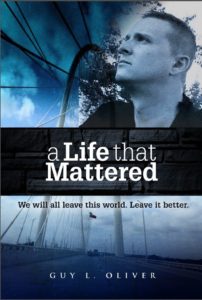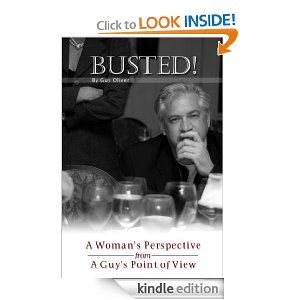I’ve intentionally avoided any detailed discussion of a life in prison. My son told me stories; stories I wish I didn’t know; things better left unsaid; things that demonstrate our justice system is anything but just. But a reality of prison life that bears on this part of his story is the violent nature the system breeds.
To negotiate the safety most of us outside prison take for granted, most inmates will join a prison gang. To his credit, Tim refused to participate in this aspect of the culture. He instead befriended two other men his age named Sam and Trevor.
They called themselves the Woodpeckers, and their mission was purely defensive. Defend each other with malice to no one.
I never experienced armed combat during my time in the service, but I have witnessed in others the toll it exacts, and I imagine it is similar to that of life in a penitentiary. The continual sense of having to be wary and the sense of ever present danger is a terrible burden in part because you don’t have the luxury of laying it down.
As such, I further imagine bonds among friends in prison are strong like those of brothers, knowing that your safety exists only as long as you and your comrades are vigilant to watch the back of the man next to you. This is a bond that is not easily unfettered after prison life finally comes to an end. So it was with my son and his two compatriots.
This aspect to my son’s story is critical to who he was in the final year of his life. The three of them were released on parole at about the same time and, wisely, he, Sam, and Trevor exploited their friendship to hold each other accountable in the wake of their incarceration.
Determined not to return to prison, they spent time together avoiding the drugs, alcohol, and general vice that landed them there—at least in the beginning.
This is the challenge of the prisoner, a fact that cannot be overemphasized in the context of understanding our current system. A break with prison must be treated in the same way the addict must treat his drug of choice once unshackled from the addiction. Returning to it, even once, invariably sentences you to yet another term and parole is no different. Spending time in the company of the familiar people and habits from your journey to the institution that once enslaved you is how 70% of former inmates become ensnared yet again.
Tim’s friend, Sam, became one of those statistics, and it served as a reminder to Tim and Trevor that the influence of addiction, bad habits, and bad actors are stronger than you are. It underscored for them both the familiar call of the Sirens and the draw of the maelstrom that impelled them to the jagged rocks of destruction.
They could only stand by and watch as their friend made bad choice after bad choice. And knowing this, I cannot avoid the notion that Tim must have felt something of my anguish as I finally let him go to make his choices.
Words are inadequate to describe the dreaded foreknowledge as you stand by and watch the self-destructive behavior of someone you love. You know how it will end, and he is blind to it. You pray it doesn’t end the way you know it will and then it does.
I wish with everything in me that my son, my daughters, my nieces, and my nephews were not privy to this particular knowledge, but such laments make no difference in the end.
“And the Lord God took the man, and put him into the Garden of Eden to dress it and to keep it. And the Lord God commanded the man, saying, ‘Of every tree of the garden you may freely eat, but of the tree of the knowledge of good and evil, thou shalt not eat. For in the day that you eat thereof you shall surely die.’”
– Genesis 2: 15 – 17
The knowledge of Good and Evil. Bitter fruit from a poisonous tree. On the day we witness such things, a little part of us dies, and if we’re not careful the knowledge will poison us as surely as hemlock. But in the knowing we have a choice to embrace the toxin or expel it. My son and his friend, Trevor, chose the latter.
I hate with every fiber of my being that Tim knew the pain of knowing this evil, but I am prouder than I can say that he did not allow his friend’s choices to return him to the dark place of his youth. In every way, it seemed, he had learned from his time in perdition the folly of such choices.
He knew well the seduction of vice and zealously guarded himself against her call.
As parents, we cannot forever protect our children; as much as we want to shield them from all the terrible moments reality foists upon them, we must sometimes settle for thankfulness that there was a lesson well learned from the pain of those moments. And such moments are guaranteed.
We often bemoan the loss of our innocence and more so, that of our children, but it is the moments of bitter disappointment and sorrow that foster tenderness, compassion, and understanding. Above all they foment determination.
In Tim’s case, the determination he felt never to return to prison when he left was galvanized by witnessing the actions of his friend, Sam. I like to think he saw some of his former self in Sam and in so doing understood something of my decision to step away from him as I began to perceive his chosen path. That even when you love someone very dearly, you must sometimes loose them from your hold and let them go their own way.
This is a hard lesson and once knowledge is foisted upon you, you can’t unlearn it, hence the warning regarding the fruit of knowing, but the warning is vain. The human condition ensures that reality will have its way with us and those we love. And it is in those moments that we must choose love or fear.
Sometimes love means letting go.


